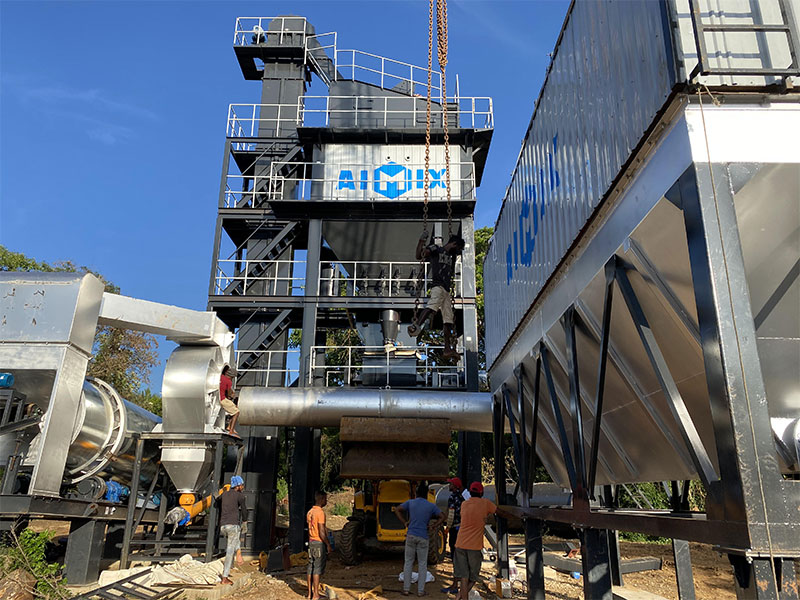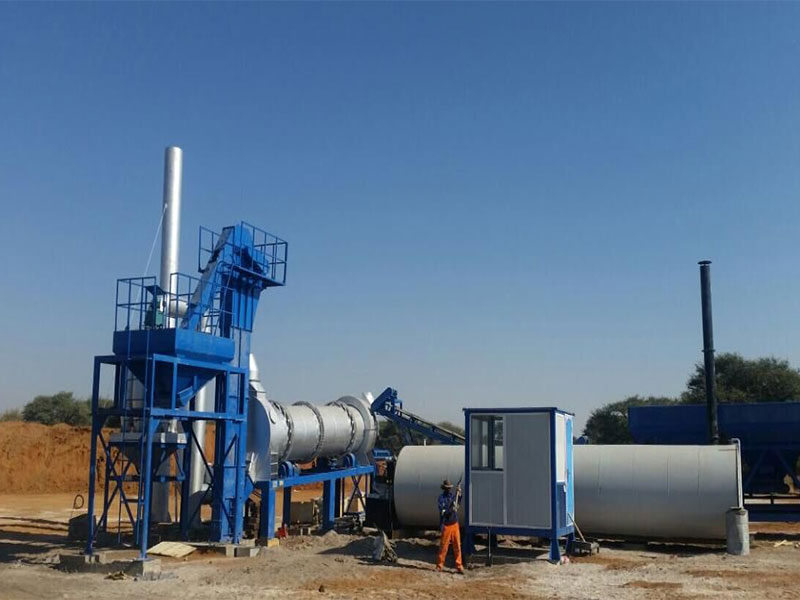Asphalt production plays a crucial role in infrastructure development, providing the essential material for road construction. However, the process is often associated with the emission of smoke pollution, which poses environmental and health hazards.
Adopting Advanced Combustion Technologies:
One of the primary contributors to smoke pollution in asphalt production is the combustion of fossil fuels. By upgrading to advanced combustion technologies, such as clean-burning furnaces and high-efficiency burners, asphalt plants for sale can significantly reduce the release of harmful pollutants into the atmosphere. These technologies not only enhance combustion efficiency but also minimize the formation of smoke and particulate matter.

Utilizing Eco-friendly Additives:
Incorporating eco-friendly additives into the asphalt mixture can contribute to a cleaner production process. Some additives, such as warm mix asphalt additives, not only improve the workability of the asphalt but also allow for lower production temperatures in the asphalt drum plant. This reduction in temperature leads to decreased emissions of pollutants, including smoke, during the manufacturing process.
Implementing Sustainable Energy Sources:
Transitioning to sustainable energy sources is a key step towards mitigating smoke pollution in asphalt production. Renewable energy options, such as solar, wind, or biomass, can be integrated into the production process to replace or supplement traditional fossil fuels. This shift not only reduces greenhouse gas emissions but also minimizes the environmental impact associated with smoke pollution.

Enhancing Dust Control Measures:
Dust generated during asphalt production can contribute to smoke pollution when it becomes airborne. Implementing effective dust control measures, such as the use of dust collectors, water spray systems, and enclosing critical areas, can prevent particulate matter from escaping into the air. This not only improves air quality but also enhances worker safety and overall environmental compliance.
Investing in Research and Development:
Continued investment in research and development is crucial for identifying and implementing innovative solutions to tackle smoke pollution in asphalt production. Collaborative efforts between industry stakeholders, research institutions, and government bodies can lead to the discovery of new technologies and best practices that promote sustainable and environmentally friendly asphalt manufacturing in mobile asphalt mixing plant for sale.
Promoting Recycling and Reuse:
Encouraging the recycling and reuse of asphalt materials can contribute to a reduction in smoke pollution. Asphalt recycling technologies allow for the incorporation of reclaimed asphalt pavement (RAP) into new mixes, reducing the demand for virgin materials and decreasing emissions associated with their extraction and production.
Conclusion:
Reducing smoke pollution in portable asphalt plant for sale is imperative for promoting environmental sustainability and safeguarding public health. The adoption of advanced combustion technologies, eco-friendly additives, sustainable energy sources, effective dust control measures, ongoing research and development, and the promotion of recycling are essential steps in achieving a cleaner and greener asphalt manufacturing process. By implementing these measures, the industry can contribute to a more sustainable and responsible approach to infrastructure development.
